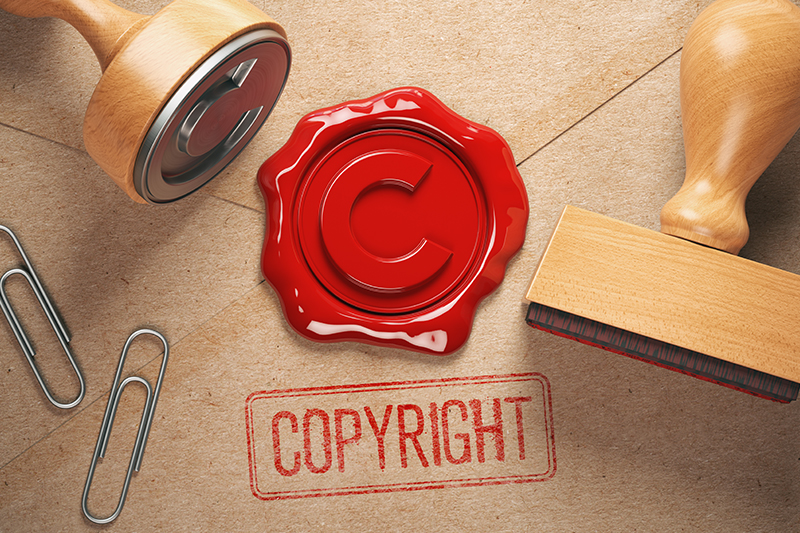As of Dec. 12, 2021, anyone who exploits an author’s work will be required to report to him, at least every six months, a set of relevant data on the commercial performance of transferred or licensed works (“audit report”). With increased transparency also comes the right for authors to demand “additional, adequate and equitable remuneration.”
This is provided for in Legislative Decree 177/2021, the Italian implementation of the EU Copyright Directive. In this article we will look specifically at:
What does "audit report" mean in the copyright sector?
The audit statement is the periodic document, required by many copyright contracts, transmitted to the author by those who commercially exploit his or her works.
The statement is very important, especially when the parties have stipulated that the author will be entitled to remuneration proportional to the actual exploitation of the works (i.e., the number of pieces sold, the number of views, etc.).
The case of the royalty statement contrasts with the case where the author signed a contract in which his right was transferred on a lump-sum basis. In the flat-rate royalty case, unfortunately, since a royalty proportional to commercial performance was not to be calculated, the information normally contained in a periodic royalty statement remained unknown to the author.
What does Legislative Decree 177/2021, effective December 12, 2021, provide on account statement?
It seems that the new Article 110-quater of the Copyright Law, introduced by Legislative Decree 08/11/2021, No. 177, leaves little room for doubt.
Anyone who exploits the work of an author will be required to report to him, at least every six months, a set of relevant data on the commercial performance of the transferred or licensed works.
The new text of the Italian rule says it verbatim: “the parties to whom the rights have been licensed or transferred and their assignees are obliged to provide authors […] at least every six months with updated, relevant and complete information on the exploitation of the works and artistic performances, and the remuneration due.”
It should be noted, however, that paragraph 7 of Article 110-quater stipulates that the reporting obligation will apply from June 7, 2022.
What information will have to be provided to authors?
Well, from now on, licensees will have to be transparent and will have to provide authors with all useful information to understand how works are exploited and with what results.
Specifically, the law requires licensees/assignees to submit a semi-annual statement informing authors about:
“(a) the identity of all parties involved in the assignments or licenses, including secondary users of works and performances who have entered into agreements with direct contractors of authors and performers;
(b) the manner in which the artistic works and performances are exploited;
(c) the revenues generated from such exploitations, including advertising and merchandising revenues, and the remuneration contractually due, as stipulated in licensing or rights transfer agreements;
(d) with specific reference to non-linear audiovisual media service providers, the numbers of purchases, views, subscribers.”
Also of particular interest is the fact that “Where the assignee or licensee of the rights referred to in paragraph 1 licenses the same rights to third parties, authors and performers shall have the right to receive […] additional information directly from sublicensees, if their first contractual counterparty does not hold all the necessary information. For this purpose, the first contractual counterparty shall provide information on the identity of sublicensees”.
Why is the transparency reform so important for authors?
This is a real revolution since the Copyright reform not only provides for greater transparency but also introduces in favor of authors and performers (who are normally the weaker party in the relationship) the right to obtain “further, adequate and equitable remuneration.”
It seems to me, therefore, that the concept of “adequate and equitable” remuneration cannot be related except to the principle of accountability.
While in the abstract, it remains possible for a contract to exist that does not include a clause with an obligation to account, on the basis of the Law any author can concretely demand accounting every six months.
From our point of view, the author will be able to request an accounting even if a flat fee was initially agreed upon precisely in order to verify its actual fairness/adequacy over time.
Moreover, the right to obtain such information also from sublicensees allows for cross-checks to the benefit of authors.
What are the penalties for those who do not submit the statement?
Finally, it is worth mentioning that paragraph 4 of the new Article 110-quater, provides for serious consequences for transferees who evade the reporting obligation.
We feel that the provision of “an administrative fine of up to 1 percent of the turnover achieved in the last financial year” is especially relevant.
In addition, the provision states that “in any case, the failure to provide the information […] constitutes a legal presumption of inadequacy of the remuneration in favor of the rights holders.”
It is understood that, precisely in the face of the inadequacy of the remuneration, the author may be awarded that “additional, adequate and equitable remuneration by the party with whom they have entered into a contract for the exploitation of the rights or its successors in title, if the agreed remuneration turns out to be disproportionately low in relation to the revenues originated over time from the exploitation of their works or artistic performances, taking into account all possible types of revenues derived from the exploitation of the work or artistic performance, for any reason and in any form” (see new Article 105-quinquies, Author’s Law).
© Canella Camaiora S.t.A. S.r.l. - All rights reserved.
Publication date: 9 December 2021
Last update: 7 May 2025
Textual reproduction of the article is permitted, even for commercial purposes, within the limit of 15% of its entirety, provided that the source is clearly indicated. In the case of online reproduction, a link to the original article must be included. Unauthorised reproduction or paraphrasing without indication of source will be prosecuted.

Arlo Canella
Managing Partner of the Canella Camaiora Law Firm, member of the Milan Bar Association, passionate about Branding, Communication and Design.
